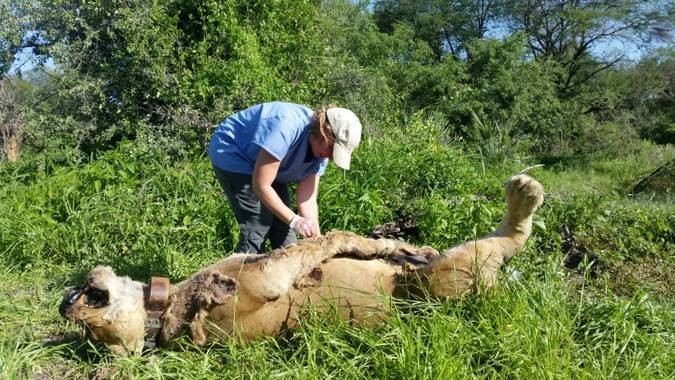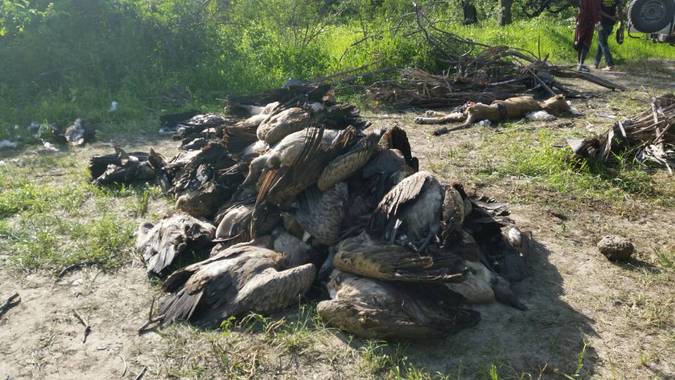
The following is a statement released by Ruaha Carnivore Project on their Facebook page:
“We are deeply saddened to report a mass poisoning incident in the Wildlife Management Area (WMA) just outside Ruaha National Park, Tanzania. We received a ‘mortality alert’ from one of our collared lions, and the team responded rapidly. When they arrived at the site, they found a devastating scene – six lions (the collared adult female, three sub-adult females and two sub-adult males) had been killed, apparently from poison as they were all found close to a scavenged cattle carcass.
This event had additional tragic consequences, with dozens of critically endangered vultures found dead or badly affected. RCP worked closely with colleagues from WCS Ruaha-Katavi, Tanzania, the Parks authorities and other local agencies, and they eventually found 74 dead vultures as well as the six lions. Thanks to the skills of the WCS team, four other sick vultures were able to be taken to the Park for treatment. Sadly, one died shortly after arrival but the others are currently doing well.
The authorities are investigating this incident, but it appears as if someone poisoned a carcass after lions attacked cattle. Alarmingly, poisoning is a common response to conflict, and this highlights how vital it is to do all we can to prevent carnivore attacks on stock, and reduce chances of retaliatory killings. Cattle are extremely important to local people, and carnivores can cause major economic and cultural hardship when they attack stock – and, when people don’t benefit from lions, it is unsurprising that they resort to killing them. Thanks to support from many partners, we have made great progress in reducing such attacks, for example by predator-proofing enclosures and engaging communities, but there is much more to be done across the landscape, and protecting grazing livestock is particularly challenging. It is also vital to secure the Wildlife Management Areas and – probably most important of all – make sure that local people receive real benefits from wildlife, so they eventually see them as more of an asset alive than dead.

This kind of event is truly devastating, but it does highlight the value of our collaring programme – without alerts from the collars, we are very unlikely to find out about such incidents, especially when they occur in remote areas. It also highlights the importance of close collaboration on the ground with partners such as Wildlife Conservation Society, Ruaha National Park, Tanzania National Parks and others, as the rapid and coordinated response meant that at least some animals could be found alive and treated.
Although this incident occurred in the WMA and not on the village land where we do most of our work, it is an extremely distressing reminder of the impact that conflict can have on wildlife. It reinforces how crucial it is to continue and expand our conflict mitigation work across the landscape. Although it is hard to measure, we are certain that by protecting livestock, providing local benefits and engaging communities, we have prevented many similar incidents occurring on village land over the past few years. The challenge now is to redouble those efforts, including collaring more lions, to learn the true scale of conflict-related mortality around Ruaha, and work as hard as possible to reduce it. This has affected the whole team, who work tirelessly day and night to prevent carnivore killings, but we thank everyone who supports us, as together we know we can reduce these terrible impacts in the future.”
To comment on this story: Login (or sign up) to our app here - it's a troll-free safe place 🙂.![]()






